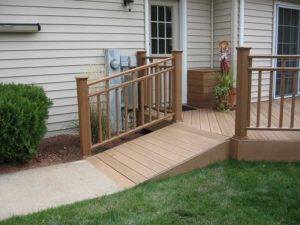
Medical providers can securely access and exchange patient medical records through a health information exchange. They are essential since so many medical records are still preserved on paper. Sending and receiving this data may be a time-consuming and error-prone operation, especially when done over the phone, fax, or mail.
Americans today are exceedingly mobile. While you may live in the Northeast, you travel there regularly for work, pleasure, or to see friends and family. Because of a patient’s health or injury, any of these stays may need a change in healthcare providers.
Perhaps that practitioner should have access to the patient’s electronic medical record, which includes current test results, diagnoses, allergies, and prescriptions? In order for health information exchanges to take place, hospitals, communities, and states must be able to exchange health information (HIEs).
Why is HIE important?
The hie software electronic sharing of health-related data between medical institutions, clinicians, and patients is known as health information exchange (HIE). Physicians, nurses, pharmacists, and specialists may securely access and communicate vital medical information via an electronic Health Information Transmit (HIE).
How does HIE benefit patients?
Increased use of Health Information Exchanges can help patients and healthcare professionals communicate more effectively (HIEs).
The 21st Century Cures Act mandates that ONC create a Trusted Exchange Framework and Common Agreement (TEFCA) to allow patient access to and sharing of personal health information. Transparency, openness, and easy application programming interfaces are part of TEFCA’s approach for improving patient data access (APIs).
HIEs can help with rural health outreach, public health emergencies, and patient matching issues.
It is mandatory for healthcare providers serving an aging population to use HIEs. A relationship with the Strategic Health Information Exchange Collaborative will assist patients in Alabama’s rural and underserved regions this year.
SHIEC involvement, according to Gary Parker, Director of Health Information Technology for Alabama Medicaid, will help Alabama One Health Record improve EHR use, care access, and telemedicine.
Natural calamities like as hurricanes and tornadoes, which force people to flee, would benefit from this change as well, because HIE services might be used more efficiently.
According to Kelly Hoover Thompson, CEO of the SHIEC, members of the HIE are experimenting with novel techniques to assisting underprivileged populations. Disparities in health care exist across the country, but we can overcome them with a united front.
During public health crises, such as those caused by natural disasters that force people to abandon their homes, effective utilization of the HIE is crucial. According to Danielle Oryn, chief information officer at Petaluma Health Center, immediate access to patient electronic health records (EHR) is critical in these instances.
Concerns about the security of health data may encourage people to believe that their information is safe even when it is shared. Changes in federal regulations may have an impact on data processing and delivery, so businesses should stay up to date on those as well.
How an HIE might be useful to improve patient care and safety or improve research?
The healthcare interoperability solution of healthcare data across institutions within a region, community, or hospital system is known as health information exchange (HIE). The data from these platforms might be utilized to rapidly improve the quality of patient-centered treatment. Health information is available through the electronic health record and may be viewed and exchanged between patients and providers.
According to Grand View Research, the global health information exchange sector was valued $988.6 million in 2015. The desire for these systems by healthcare providers is projected to drive market growth.
Data exchange systems are being developed in response to the rising need to store, acquire, and securely share huge amounts of healthcare data. The use of healthcare information technology has increased, which has resulted in an improvement in healthcare quality.
Private health information exchange is likely to lead the industry in the next years, and this sector will grow significantly. Private healthcare information providers play an important part in this shift at all system levels. The absence of governance difficulties and great workflow efficiency are also likely to drive market growth.
What Is the Role of HIE in Health Care?
By linking the user’s electronic health record to standardized data, personalized health information may be created. Patients with diabetes can be recognized by entering their test results into an electronic health record (EHR). It is vital that a patient suffering from hyperglycemia get medical assistance very once. This also influences patients’ desire for follow-up sessions. Health data may be sent in a variety of ways.
Medical personnel can safely share protected patient information via “Directed Communicate.”
Healthcare providers can query other healthcare providers for patient information via Query-based Exchange.
With the help of customers, collects and manages personal health information about patients. The interoperability solution for healthcare is facilitated by the use of health information interchange. New techniques of transmitting health information are always being developed as technology progresses. The approach is gaining steam as health care practitioners become more aware of the benefits of information sharing. The following are some of the benefits of sharing health data:
As a result, there is no need for paper, and the risk of data loss is eliminated.
A database is used to store and disseminate information, which reduces the risk of medical and pharmaceutical errors dramatically It Helps physicians and healthcare workers make more informed clinical decisions while also supporting optimal treatment and care.
Improving health reporting and monitoring is made easier by streamlining the flow of healthcare data. The health information exchange system has the potential to improve the quality and effectiveness of healthcare delivery by lowering the number of unnecessary tests.
Medical data and patient information may be transmitted more easily via a digital health information exchange system (HIE). It also provides patients with a wealth of personal health information.
All in all, the best practices of HIE will significantly increase care services in health industry.









